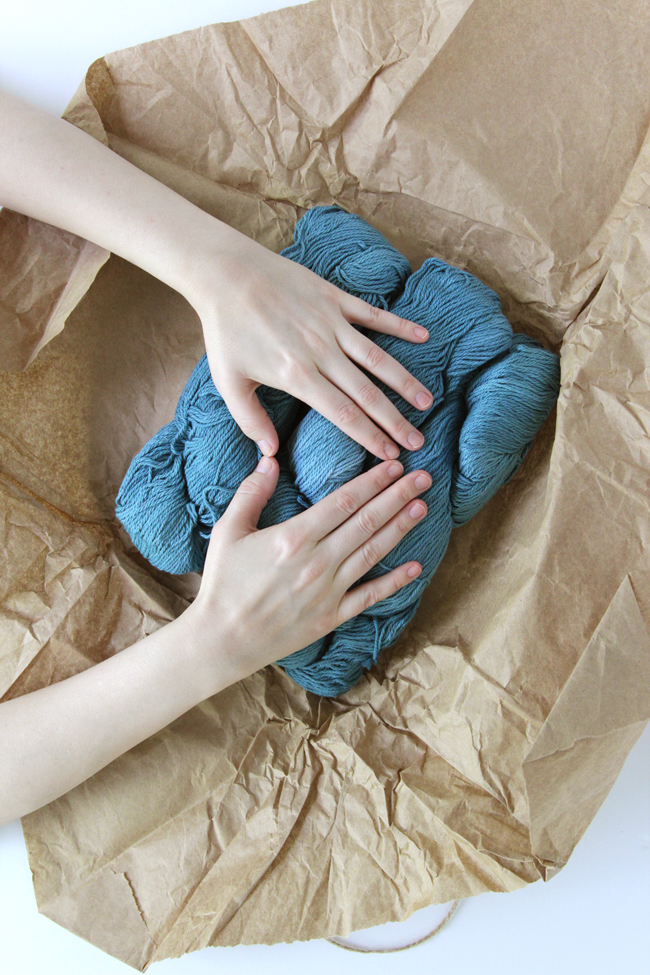
I’ve always loved all kinds of yarn. Affordable yarn, colorful yarn, handmade yarn, specialty yarn – you name it. But as a designer and someone whose interest in ethical consumerism has only grown with age, I started to realize that there are some questions to think about when you consume yarn, just like anything else.
Where does your yarn come from? If you’re knitting in a certain country, it might be a priority for you to reduce your carbon footprint by working with domestically made or sourced yarn.
What sheep used to wear your wool? There’s such a thing as being a vegan knitter – some knitters avoid working with animal fiber altogether.
Did you know that it takes a heck of a lot of water to make and dye yarn? Some yarn companies strive to be more eco-friendly by being thoughtful about their water consumption and disposal methods.
Now, I’m by far no expert on any of these issues, and the above questions are by far not an exhaustive list of questions about how to ethically consume yarn. While I’m vegetarian, I’m not vegan, and I do work with animal fibers. My workplace doesn’t recycle (but I’m working on them). My apartment does not have a rain barrel. Nobody’s perfect, but if everyone is a little more aware of how they consume, it can have a big impact.
That’s why I partnered with Yarnthology this week. I think their site says best why these issues matter:
Yarn is a vehicle for expression and always has a story to tell.
Sadly, many fibers tell a story about a textile industry woven together with human rights abuses, child labor, unfair trade practices, animal cruelty, and environmental damage.
At yarnthology we do things differently by carefully selecting yarn brands based on how they treat people, animals, and the environment.
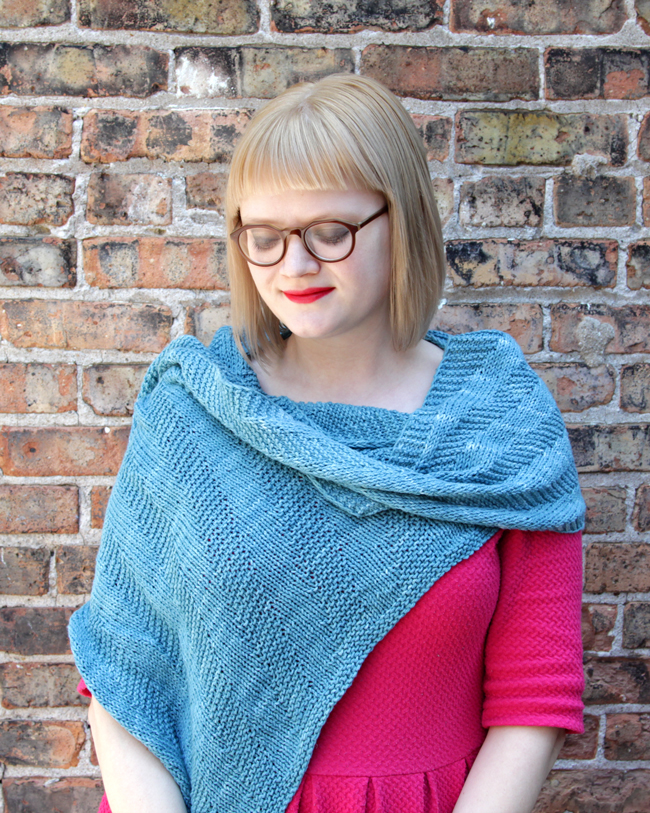
The Sixth Degree Shawl was designed with Cestari Monticello, a yarnthology yarn.
Carrying brands like Blue Sky Alpacas, Cestari and Malabrigo (just to name a few), Yarnthology does things differently. You can shop the site with ethics-based filters. You can search for yarn by whether it’s eco friendly, vegan, cruelty free, American made, or ethically traded. It shouldn’t be totally innovative and mind-blowing that they do this, but it totally is! Of course I’m going to keep shopping a site that takes the important (but sometimes-confusing and/or time consuming) work out of ethical yarn shopping.
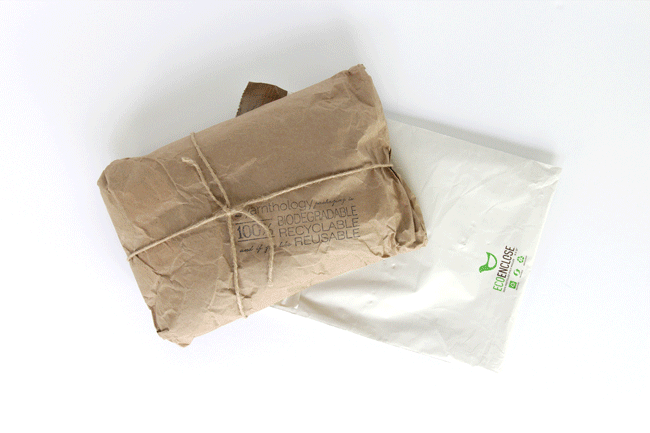
Yarnthology is the site that sponsored Monday’s free pattern, the Sixth Degree Shawl. As with all partnerships that involve a new design, the first step was getting yarn from them. I was so excited to see that even their packaging is eco friendly! Yarnthology uses sustainable and biodegradable packaging, keeping even logistical aspects of their business in eco-check.
Cestari’s Monticello Collection yarn was so great to work with for the new design. If you take a look at the Yarnthology page for the yarn, you’ll see how easy it is to identify that the yarn is cruelty free, ethically traded, eco-friendly and vegan. And they’re completely transparent about the fact that the yarn’s 25% flax content is sourced from outside the U.S. With Yarnthology, you’re completely aware of all of the major ethics points as you decide whether or not to buy the yarn – no additional research required!
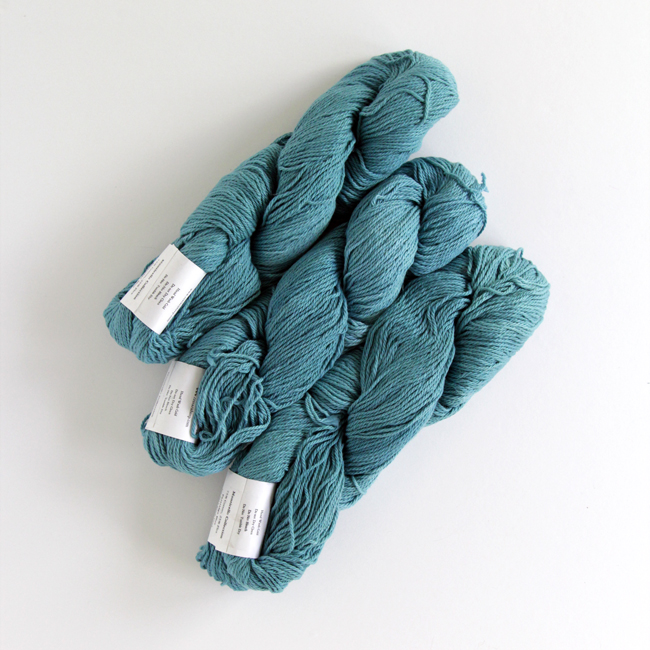
Cestari’s Monticello Collection yarn in partridge blue
Enter to win a Yarnthology prize!
At this point, I feel pretty confident that you’re at least curious to try Yarnthology for yourself. Enter in the box below for your chance to win 2 skeins of Cestari Monticello yarn (a.k.a. enough yarn to make the Sixth Degree Shawl) in your choice of color.
If you’re too excited to wait for the giveaway to end, Yarnthology is offering 20% off Cestari, 15% off the entire store, and free shipping with code HANDSOCCUPIED.
PS: If you’re not reading this on handsoccupied.com, you’ll need to visit the site to enter.
This post & giveaway are sponsored by yarnthology. All opinions are my own. I am not an expert in sustainable and ethical consumerism, so please be kind in the comments if my lifestyle or perspectives do not align with your own.
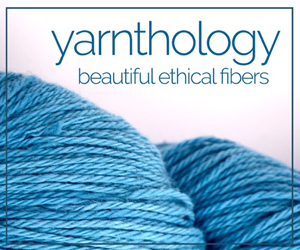

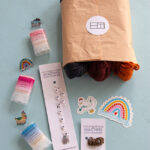
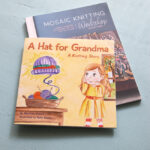
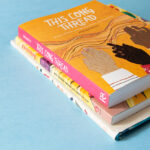


I didn’t know this! This is wonderful. Thanks for letting us know.
I had no idea that animal cruelty could be a part of the making of yarn! I love to knit. I am self taught and feel so proud when I make something . Now I will look more into the yarn making not just the knitting . Thank you.
Thank you!!
What pretty yarn!! And I love that it’s a yarn I can feel good about using. (ethical vegan of 40 years!!)
This is exciting! The yarn is beautiful!
Such pretty yarn! Thanks for the Giveaway!
That’s all well and good but how many knitters can afford a $13 hank of 100g of yarn? Or better yet a $24.40 hank, or a (gasp!) $70 hank! All this succeeds in doing is making people feel guilty for buying their more reasonably priced yarns, which may not even HAVE practices that are unfair or unethical. I love animals and people and want both to be treated fairly, but there’s got to be a better way.